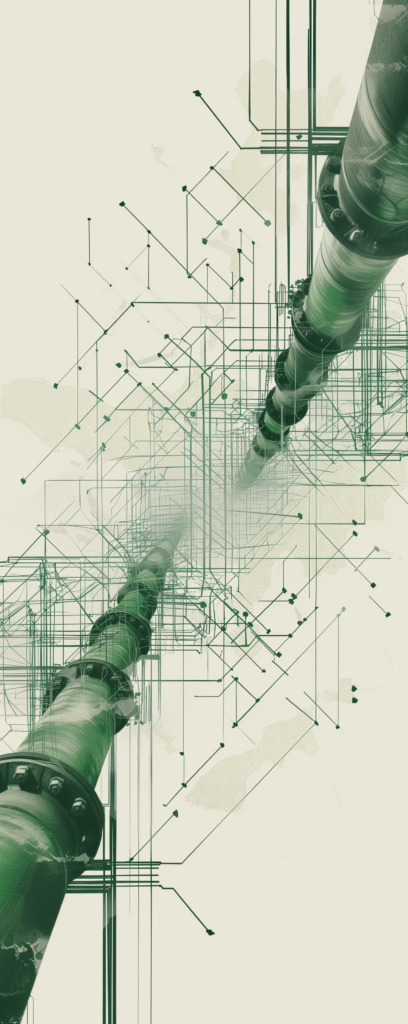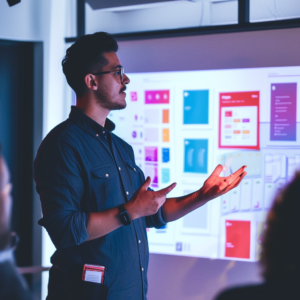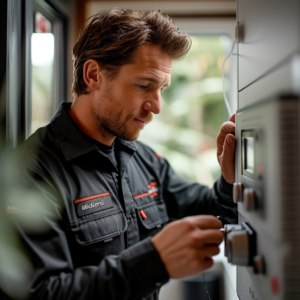Production engineers are essential in the oil and gas industry, responsible for maximising hydrocarbon recovery and ensuring the safe, efficient operation of production facilities. They work across all stages of the production lifecycle, from well completion to ongoing optimisation, using their technical expertise and problem-solving skills to drive efficiency, reduce costs, and enhance safety in production operations.
Educational Requirements and Qualifications
Necessary Degrees and Certifications
A bachelor’s degree in petroleum engineering, mechanical engineering, or a related field is typically required for entry-level production engineer positions. While a bachelor’s degree is the minimum requirement, advanced degrees such as a Master’s or Ph.D. in petroleum engineering can significantly enhance career prospects and open doors to senior roles or specialised areas within the field.
Relevant Courses and Training
To further develop their skills, production engineers can benefit from specialised courses like the Gas Lift Systems Design, Operation, and Optimisation course offered by Mobility Oil and Gas. This course provides a comprehensive understanding of gas lift methods, concepts of operation, and optimisation strategies, enabling engineers to design, operate, diagnose, and optimise gas lift systems effectively.

Key Skills and Competencies
Technical Skills
- Reservoir Engineering: Understanding fluid flow behaviour, pressure dynamics, and production mechanisms.
- Production Optimisation: Analysing production data, conducting well tests, and implementing strategies to enhance well performance.
- Artificial Lift Systems: Familiarity with gas lift, ESPs, hydraulic pumping units, and their operation.
- Well Intervention: Knowledge of workovers, well stimulation, and artificial lift installations.
- Production Facilities: Understanding of separators, dehydrators, compressors, and their operation.
Soft Skills
- Problem-Solving: Analysing complex issues and developing effective solutions.
- Critical Thinking: Evaluating information objectively and making informed decisions.
- Communication: Collaborating with diverse teams and explaining technical concepts.
- Teamwork: Working effectively with colleagues to achieve shared goals.
- Leadership: Motivating and guiding teams, if applicable to career stage.
Job Responsibilities and Daily Tasks
Planning and Designing Production Strategies
- Well Completion Design: Collaborating with reservoir engineers and drilling engineers to design well completion programs that optimise production potential and minimise risks. This involves selecting appropriate completion equipment, perforating strategies, and stimulation techniques.
- Production Optimisation Planning: Developing and implementing production optimisation plans to maximise well performance and hydrocarbon recovery. This includes analysing production data, identifying bottlenecks, and proposing interventions such as artificial lift installations or well stimulation treatments.
- Facility Design Input: Contributing to the design and modification of surface production facilities, ensuring that they are properly sized, configured, and equipped to handle the produced fluids efficiently and safely.
Supervising and Monitoring Production Operations
- Well Performance Monitoring: Continuously monitoring well production rates, pressures, and temperatures to identify trends, diagnose problems, and optimise production parameters.
- Artificial Lift Optimisation: Supervising the operation and maintenance of artificial lift systems (gas lift, ESPs, etc.), ensuring their optimal performance and troubleshooting any issues that may arise.
- Well Intervention Planning and Execution: Planning and supervising well intervention activities such as well cleanouts, stimulation treatments, and artificial lift installations to maintain or improve well productivity.
- Production Reporting: Preparing daily, weekly, and monthly production reports, documenting well performance, operational activities, and any issues encountered.
Troubleshooting and Problem Solving
- Identifying and Diagnosing Production Problems: Investigating and resolving production issues such as wellbore damage, sand production, scaling, or equipment malfunctions.
- Optimising Production Processes: Continuously seeking ways to improve production efficiency, reduce costs, and enhance safety by identifying and implementing operational improvements, new technologies, or innovative solutions.
Salary Expectations and Career Growth
Entry-Level vs. Experienced Salaries
As a Junior Production Engineer, you can expect an average salary of £42,500 per year, with entry-level positions starting at £32,917 per year. Senior Production Engineers earn an average salary of £49,423 per year, with the potential for additional cash compensation averaging £5,864, ranging from £2,610 to £13,172. Salaries vary based on factors such as location, company size, and individual qualifications.
Career Advancement Opportunities
With experience and continuous professional development, you can progress to senior roles such as:
- Senior Production Engineer: Overseeing a team of production engineers and taking on more complex projects.
- Lead Production Engineer: Leading production operations for a specific field or asset.
- Production Engineering Manager: Managing a team of production engineers and overseeing all aspects of production operations.
- Technical Specialist: Focusing on a specific area of expertise, such as artificial lift, well completions, or production optimisation.
Continuous professional development is crucial for career advancement in this field. Attending industry conferences, workshops, and pursuing advanced certifications can demonstrate your commitment to staying current with the latest technologies and best practices.
How the Gas Lift Systems Design, Operation, and Optimisation Training Course Can Help
Course Content and Benefits
Our Gas Lift Systems Design, Operation, and Optimisation course is designed to equip production engineers with the knowledge and skills necessary to effectively manage gas lift systems throughout their entire lifecycle.
The course covers a wide range of topics, including:
- Introduction to Gas Lift: Understanding the fundamental principles, components, and functions of gas lift systems.
- Artificial Lift Activities: Exploring the various activities involved in gas lifting operations, from well selection to optimisation.
- Benefits Realisation & Sustainability: Learning how to assess and maximise the benefits of gas lift while ensuring sustainable operations.
- Case Studies in Optimisation: Analysing real-world case studies to understand how gas lift optimisation strategies are applied in different scenarios.
- Gas Lift Limitations: Recognising the limitations of gas lift and understanding when alternative artificial lift methods may be more suitable.
- System Design Principles: Mastering the key principles of gas lift system design, including equipment selection, injection rates, and well considerations.
- Troubleshooting Techniques: Developing skills in diagnosing and resolving common issues in gas lift systems.
- Optimisation Strategies: Learning advanced techniques to optimise gas lift performance, including data analysis, modelling, and simulation.
- Comparison of Design Methods: Evaluating the advantages and disadvantages of graphic and manual design methods.
By participating in this course, production engineers will:
- Gain a deep understanding of gas lift technology and its applications.
- Develop the skills necessary to design, operate, and optimise gas lift systems for maximum efficiency and productivity.
- Enhance their troubleshooting capabilities.
- Learn how to leverage data analysis and modelling to make informed decisions about gas lift operations.
- Gain a competitive edge in the job market by demonstrating their expertise in this specialised area.
Enhancing Career Prospects

Completing the Gas Lift Systems Design, Operation, and Optimisation course demonstrates a commitment to professional development and a desire to stay at the forefront of industry advancements. This can significantly enhance your career prospects by:
- Expanding your skillset: Gaining expertise in a specialised area like gas lift makes you an asset to employers.
- Increasing your earning potential: Specialised knowledge often translates to higher salaries and better job opportunities.
- Opening doors to new roles: Your expertise in gas lift could lead to promotions or opportunities in technical specialist or leadership positions.
- Building your professional network: The course provides a platform to connect with other industry professionals and build valuable relationships.
Frequently Asked Questions (FAQs)
What educational background is required to become a Production Engineer?
A bachelor’s degree in petroleum engineering, mechanical engineering, or a related field is typically required.
How does the Gas Lift Systems course from Mobility Oil and Gas benefit production engineers?
The course enhances technical knowledge, practical skills, and career prospects in gas lift optimisation.
What are the key responsibilities of a Production Engineer?
Key responsibilities include well completion design, production optimisation, artificial lift management, and troubleshooting production issues.
What is the average salary for a Production Engineer?
Average salaries range from £32,917 for entry-level to £49,423+ for senior positions, with potential for additional compensation.
What are the career advancement opportunities for production engineers?
Opportunities include senior engineer, lead engineer, manager, and technical specialist roles.
Ready to take your production engineering career to the next level?
Enrol in the Gas Lift Systems Design, Operation, and Optimisation course today and unlock your full potential in the oil and gas industry!

